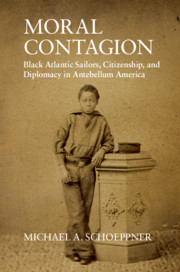Refine search
Actions for selected content:
6 results
2 - Historical Overview of Constitutional Adjudication by the Supreme Court
-
- Book:
- The Changing Constitution
- Published online:
- 21 August 2025
- Print publication:
- 21 August 2025, pp 35-56
-
- Chapter
- Export citation
Prologue
-
- Book:
- Slavery and Sacred Texts
- Published online:
- 12 June 2021
- Print publication:
- 01 July 2021, pp xiv-xxii
-
- Chapter
- Export citation
6 - “Times Now Are Not as They Were”
-
- Book:
- Slavery and Sacred Texts
- Published online:
- 12 June 2021
- Print publication:
- 01 July 2021, pp 229-261
-
- Chapter
- Export citation
4 - Abridgment of Rights before and after the Civil War
- from Part II - From Abridgment to War and Ratification
-
- Book:
- The Second Founding
- Published online:
- 30 October 2020
- Print publication:
- 12 November 2020, pp 71-92
-
- Chapter
- Export citation
4 - The Spirit of 1787
-
- Book:
- The Constitutional Origins of the American Civil War
- Published online:
- 28 June 2019
- Print publication:
- 18 July 2019, pp 134-182
-
- Chapter
- Export citation

Moral Contagion
- Black Atlantic Sailors, Citizenship, and Diplomacy in Antebellum America
-
- Published online:
- 11 January 2019
- Print publication:
- 17 January 2019
